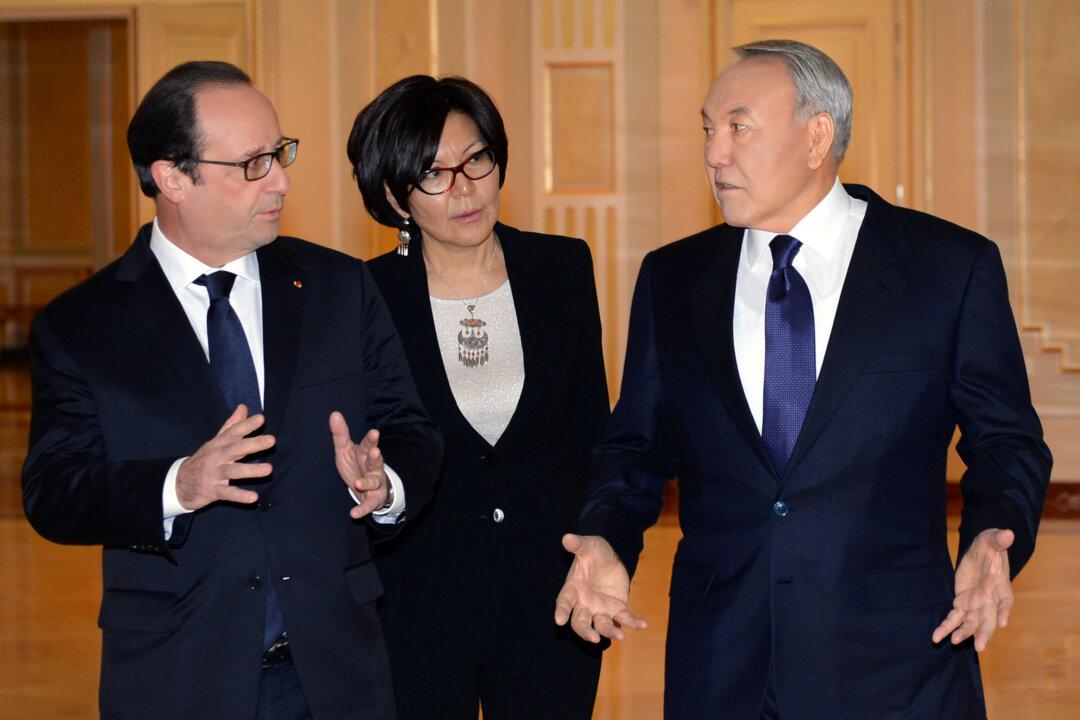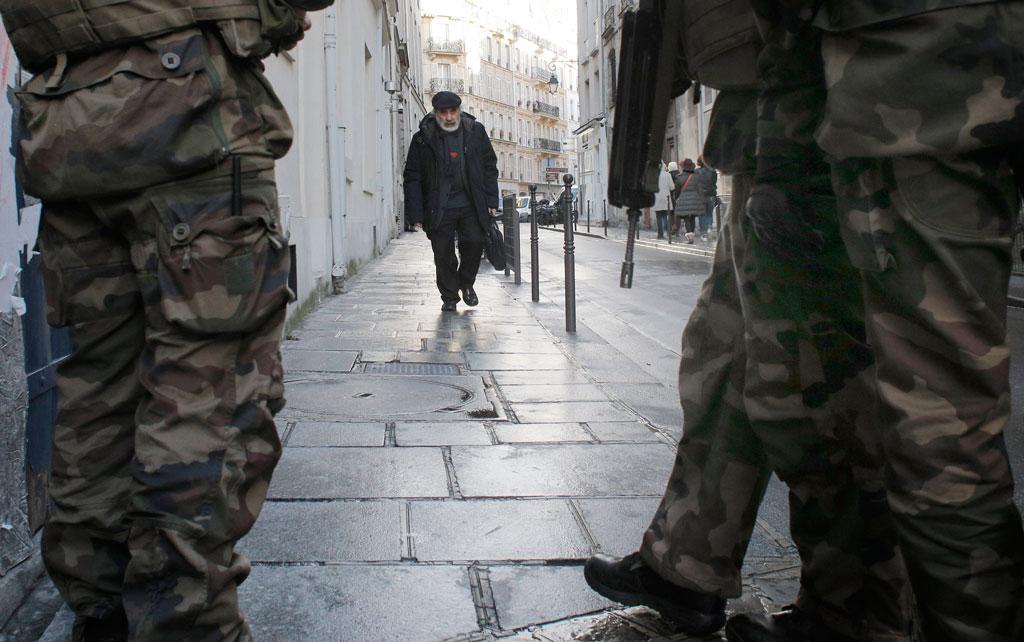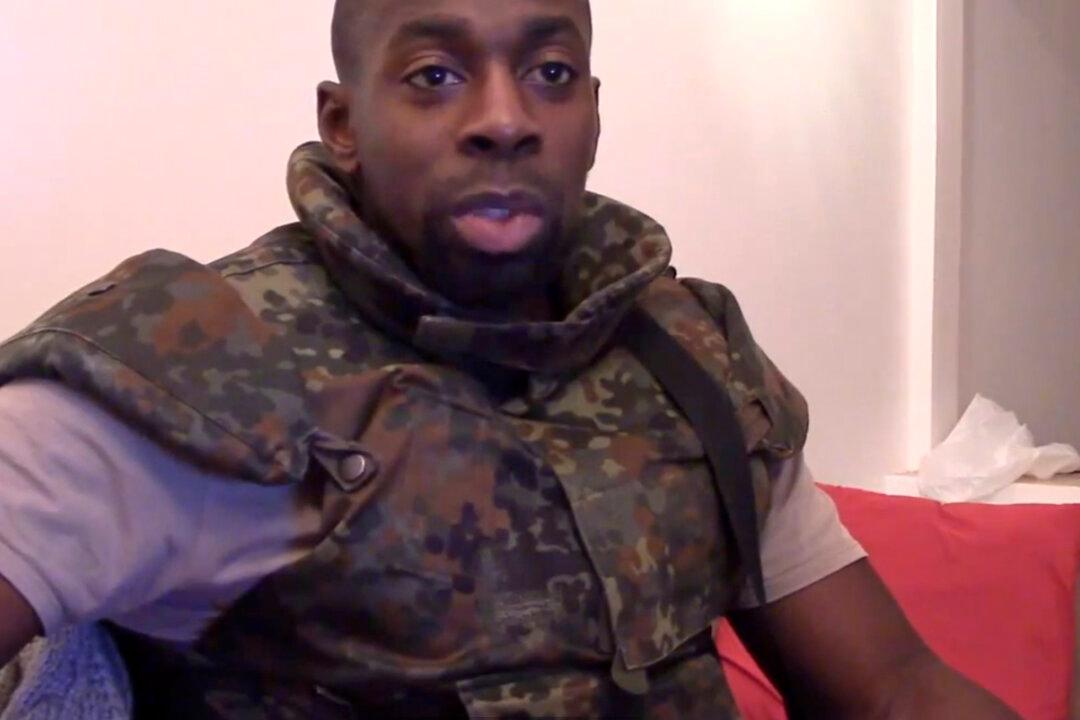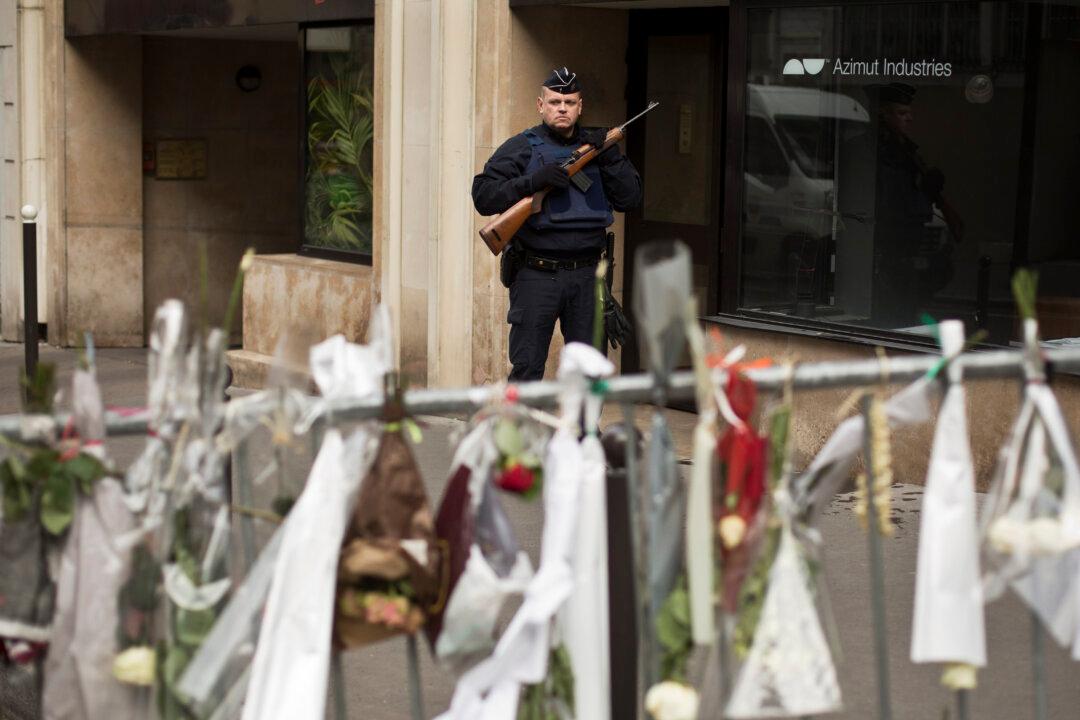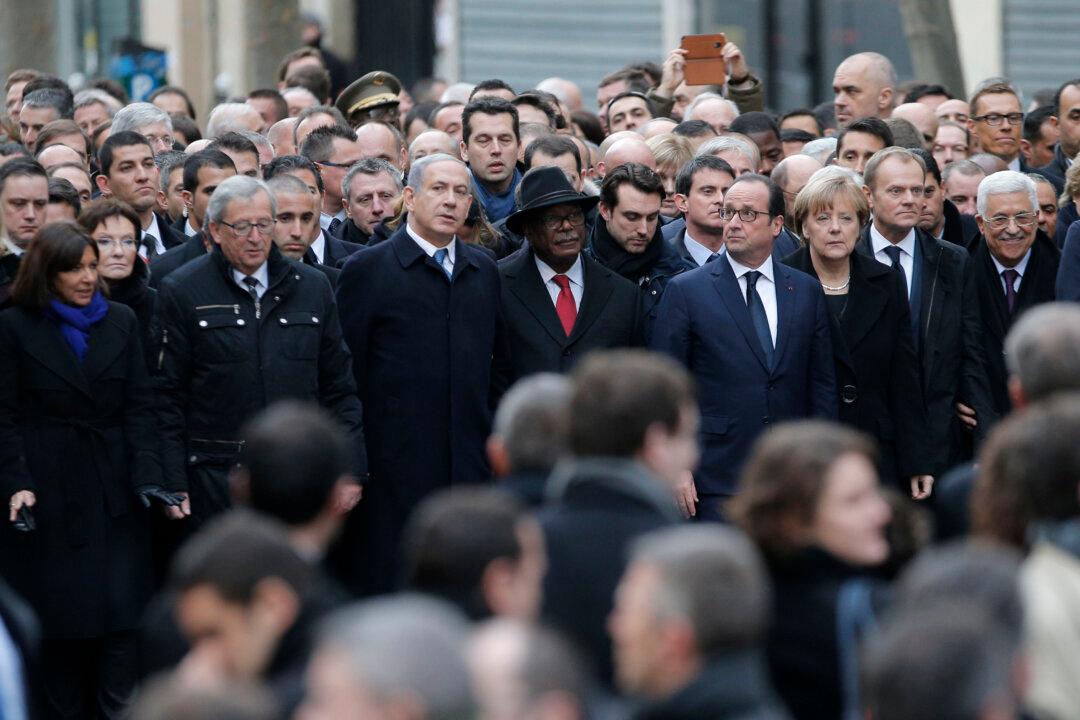PARIS—Traced to a Cote d'Azur villa by private detectives for the bank he once led, the Kazakh oligarch-turned-dissident is dwarfed by the masked French court guards flanking him. He is the smallest man in the room.
Mukhtar Ablyazov is nonetheless a huge problem for Western governments, forced to choose between abetting a resource-rich authoritarian regime or defending a man who is known to have hidden millions — and happens to be a rare force for political opposition in his homeland.
French President Francois Hollande is wrapping up a two-day visit to Kazakhstan on Saturday, accompanied by about 40 corporate executives and more than a dozen university higher-ups intent on strengthening ties with the country, the world’s largest supplier of uranium.
The topic of Ablyazov is certain to come up in meetings with Nursultan Nazarbayev, who has led the country since before the fall of the Soviet Union.
The Case
Ablyazov’s saga began in 2001, when as energy minister he turned against Nazarbayev, setting up an opposition party. He was imprisoned for abuse of public office.
He was pardoned and freed in 2003 after promising to stay out of politics. He later reneged, however, and funneled money into the opposition even as he built up BTA Bank, one of Kazakhstan’s largest financial institutions, as chairman.
In 2009, amid the nationalization of BTA, Ablyazov sought asylum in Britain. The bank, which claims Ablyazov has siphoned off billions of dollars, went after him in English courts. With a jail sentence hanging over him for contempt in a civil case — and threats against his life — Ablyazov disappeared again.
Detectives and French police found Ablyazov in a villa on the French Riviera in 2013. The government of Kazakhstan was also on his trail.
During his incarceration in France, Kazakhstan commissioned plans to scrub Internet searches linking him to the dissident movement, target influential lawmakers and journalists to turn public opinion against him, and hire a non-governmental agency to draft a report linking Ablyazov for white-collar crime, according to documents provided by his lawyers. They say Kazakhstan has also been quietly pressuring Britain to lift his political asylum there.
But Ablyazov has done little to help his case, especially in Britain, where he has lost as many as 13 court decisions, depending on who is keeping count. He skipped out on a prison term for contempt, was found to be shifting assets from one offshore entity to another and, an irritated English judge found, acted with “cynicism, opportunism and deviousness toward court orders.” British courts have granted BTA judgments totaling nearly $4 billion.
Even as Ablyazov has lost in civil litigation, some in his inner circle — including his wife and little girl, and a top deputy co-accused with him — are winning cases elsewhere in Europe. Lawyers for BTA and the Kazakh government insist he’s an oligarch embezzler, and point to the pair of lavish English manors and to hundreds of shell companies they say he controls.
French Connection
France is an unlikely participant in the struggle between Ablyazov and Nazarbayev.
Ties between France and Kazakhstan are tangled in politics — the entourage of ex-President Nicolas Sarkozy is under investigation over suspected kickbacks in deals worth 2 billion euros that included the sale of 45 helicopters to Nazarbayev’s government. Hollande’s trip, like that of Sarkozy before him, reflects Kazakhstan’s outsize important to France, personified in the uranium mine owned by French nuclear giant Areva.
But the two countries have no extradition agreement, nor is one in the works. Kazakhstan’s human rights record, its judicial system and its authoritarian government have come under repeated criticism. An official with Hollande’s office, who spoke on condition of anonymity because trip details were sensitive, said the question of human rights was likely to come up when the two leaders meet.
In France, courts have repeatedly ruled to extradite Ablyazov to either Russia or Ukraine. The latest ruling, in October, is under appeal. He and his lawyers insist that if he is extradited, he will end up in Kazakhstan. This time, they say, there will be no pardon.
“It’s not only economic interests of France. It’s geopolitical interests as well,” said Yevgeniy Zhovtis, a Kazakh human rights activist. “France is in a really difficult position because Ablyazov is well known.”
Zhovtis said Ablyazov was not very different from anyone else who got rich in the lawless days after the fall of communism.
“There is nobody who made money in that time who is clean,” Zhovtis said. The only reason Ablyazov is being targeted is because of his political ties, he said.
Zhovtis, like Ablyazov’s family, believes the dissident banker will end up back in Kazakhstan, no matter that Russia and Ukraine have promised otherwise to the French government.
Lawyers for BTA, however, say Russia has nothing to gain by breaking its word on an extradition agreement. They say the bank is still digging out from the massive fraud that Ablyazov committed. They point to court ruling after court ruling that found that he systematically hid assets, and said whatever politics he has are beside the point. The bank loaned or paid money out to companies secretly controlled by Ablyazov, they say, including one that remains an unfinished construction site near the Moscow airport.
“There’s a long history of Ablyazov being evasive and lying to the English court,” said Richard Lewis, a lawyer for BTA. “He has certainly blackened his reputation permanently.”
From The Associated Press. AP writer Sylvie Corbet contributed.
